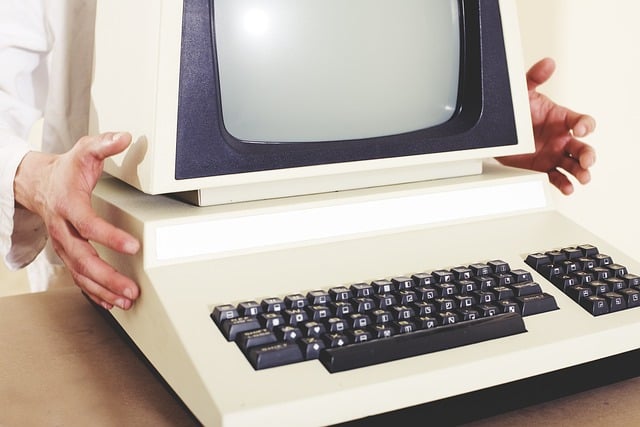The next 10 years: 8 tech trends you’ll need to be ready for
The pace of change in tech has always been blistering. But according to many experts, we’re going to experience more technological progress in the...
Our client portal provides all the tools you need to create, view or update your support requests.
For urgent IT support during business hours, or if you suspect anything suspicious call 01314528444 for the fastest response.
If one of our team has asked you to start a remote control session on your computer, use the remote control menu option above.
4 min read
itfoundations
Originally posted on November 20, 2023
Last updated on September 23, 2024
Our IT Baseline Standard recommends replacing a laptop every 3 years. That isn’t an arbitrary number, and we should also clarify that it’s not a marketing ploy to get you to spend money on new devices. It’s a considered position based on performance, efficiency, productivity, and security; and one that we follow ourselves. In this blog, we want to explain the rationale behind our thinking.
The world of technology evolves at an unprecedented pace, there are some pretty compelling reasons to consider replacing your laptop every few years so let’s dive into why it might be time for you to say goodbye to that old friend and welcome a shiny new one into your life.
First things first, let’s talk about speed. You have probably noticed that your laptop starts to slow down over time. Just like us, laptops age, and their performance tends to degrade with time. Newer laptops come equipped with more powerful processors, additional RAM, and faster storage, making them considerably speedier than their older counterparts.
This change is perfectly illustrated by CPU Benchmark’s year-on-year performance graph which shows the pace of change.

If your old laptop is taking forever to start up or runs at a snail’s pace when you open multiple tabs or applications, it might be time for an upgrade. The frustration of dealing with a slow machine can drain your productivity and test your patience. Replacing it with a newer model can drastically improve your daily computing experience.
A three-year cycle keeps components relevant, secure and capable. Where a device was very high spec when new it could easily last a year or even two more but for an average device, this cadence is about right. Conversely, where a laptop is low spec it may only last less time before becoming noticeably slower.
The tech world is constantly evolving, and software developers are no different. They release updates and new software versions that are designed to work with the latest hardware. This means that as your laptop ages, it might not be able to keep up with the demands of newer software, leading to compatibility issues and a less-than-optimal user experience.
Updates to operating systems and endpoint protection software constantly need more resources to carry out ever more complex processes. As these updates get applied, systems start to struggle more and more until eventually, they become noticeably slower.
The inability to run the latest software can limit your productivity. By replacing your laptop every few years, you ensure that you can smoothly run the latest software and take full advantage of the features and improvements they offer.
Cybersecurity is no joke, and it’s becoming increasingly important as we store more and more sensitive information on our laptops. Older laptops may lack the advanced security features and hardware necessary to protect your data from modern threats. Newer laptops often come with improved security features such as fingerprint scanners, facial recognition, and more secure hardware components.
Additionally, manufacturers tend to provide security updates and patches for their products for a limited period. As your laptop gets older, it’s likely to stop receiving these crucial updates, leaving your device vulnerable to potential security breaches. Replacing your laptop every few years ensures that you have the latest security features and software updates, helping you stay safe in our increasingly connected world.
Is your laptop constantly tethered to its charger like it’s on life support? Older laptops often suffer from decreased battery life due to wear and tear on the battery itself. While it’s possible to replace the battery in some laptops, this isn’t always a practical or cost-effective solution, especially if other components are also showing signs of ageing.
Newer laptops tend to come with more energy-efficient components and optimised power management systems. This results in significantly better battery life, which means you can work or play on the go without constantly searching for an outlet. Replacing your laptop every few years will keep you productive without being tied to your charger.
Do you remember the time when a “portable” laptop weighed as much as a small boulder? Fortunately, those days are long gone. Newer laptops are sleeker, more compact, and lighter. They are designed with portability in mind, making them easy to carry around in a backpack or tote bag.
If you’ve been lugging around an old, clunky laptop that feels like it’s giving you an extra workout, it’s time for a change. A new laptop can be a breath of fresh air, making your daily commute or travel much more enjoyable.
Laptops come with a limited warranty, and after that, you’re on your own if something goes wrong. The older your laptop gets, the higher the chances of encountering hardware failures or other issues. At that point, you’ll either have to spend a significant amount of money on repairs or just replace the laptop altogether.
New laptops typically come with a one to three-year warranty, and many manufacturers offer extended warranty options. This peace of mind is invaluable, as it ensures that you won’t be stuck with hefty repair bills. When you replace your laptop every few years, you reset the clock on your warranty and can enjoy the confidence that comes with knowing you’re covered if anything goes wrong.
It’s worth mentioning that older laptops, when disposed of improperly, can have a significant negative impact on the environment. E-waste is a growing problem, and electronic devices, including laptops, can be harmful if not recycled or disposed of correctly.
When you replace your laptop every few years, you can ensure that your old laptop is disposed of or recycled responsibly. Many manufacturers and retailers offer recycling programs, making it easy for you to minimize your environmental footprint.
In conclusion, while there are costs involved in replacing laptops regularly, there are many compelling reasons to replace laptops every few years. Improved performance, manufacturer support, security and enhanced portability are just some of the reasons. So, when budget time comes around it’s worth looking at your IT inventory and identifying the devices that should be replaced to ensure that your organisation can work efficiently and securely.
If you want to know more about how we can help you streamline your cashflow and ensure that your staff are working efficiently and securely then get in touch today.

The pace of change in tech has always been blistering. But according to many experts, we’re going to experience more technological progress in the...

Computers play a significant role in businesses of all sizes. From storing and processing data to running software applications, computers have...

3 min read
We often get asked how regularly cybersecurity awareness training should be done. Is annually enough? We don’t think so. In fact, we provide weekly...